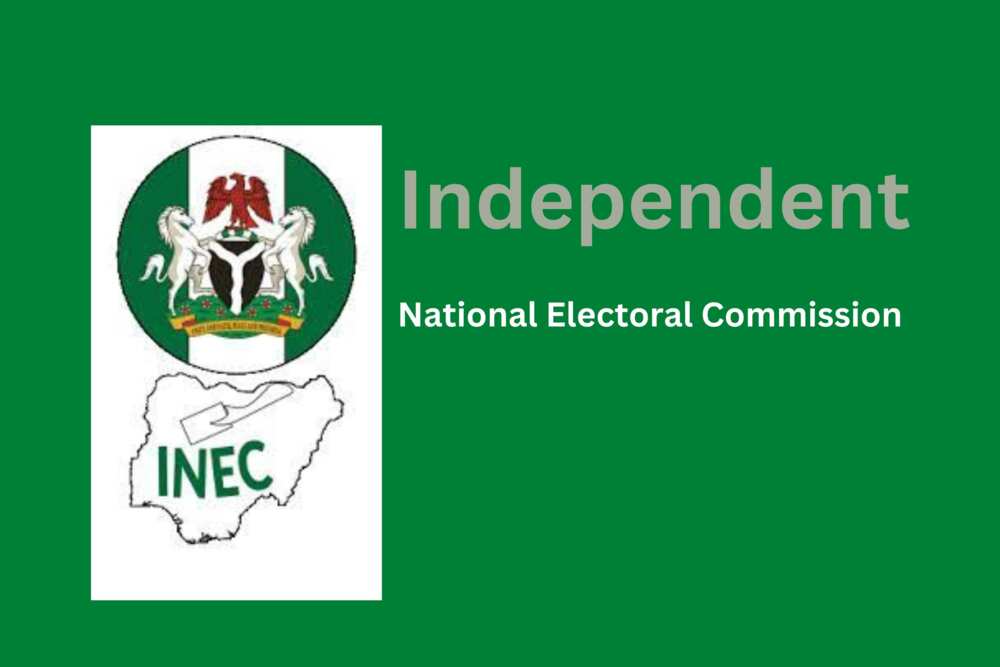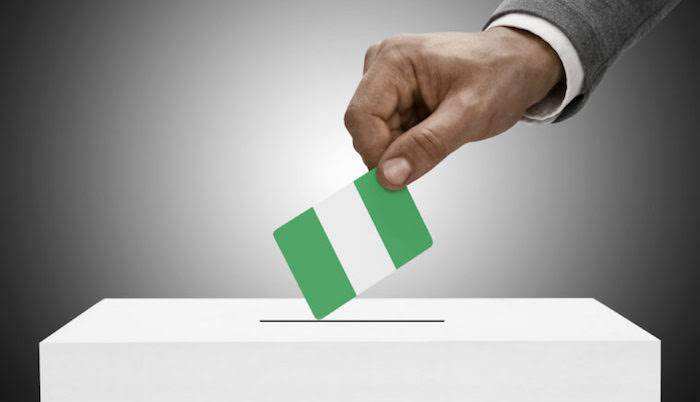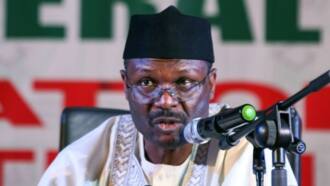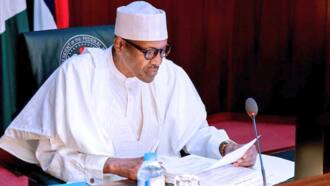History of INEC in Nigeria: interesting facts you should know
Independent National Electoral Commission (INEC) is a body responsible for conducting elections to any elective body or office established by the constitution in Nigeria. Here is a brief history of INEC and some of its main functions.

Source: UGC
The Independent National Electoral Commission is best known among Nigerians as the commission that organises regional and general elections in Nigeria every 4-5 years. But the function of this commission consists not only in conducting regional and general elections and overseeing the entire electoral processes but developing democracy in Nigeria.
History of INEC in Nigeria
INEC was established in what year? The Independent National Electoral Commission was established in 1999 to conduct and oversee the 1999 general elections, which restored democracy in Nigeria. Gen.Abdulsalam Abubakar, the former military head of the state, established it.
During the history of INEC, many electoral commissions were set up and dissolved. They include:
- The Electoral Commission of Nigeria (ECN)
- The Federal Electoral Commission (FDC or REDECO)
- The Electoral Commission of Nigeria (NECON)
- The Independent National Electoral Commission (INEC)
When the Electoral Commission of Nigeria (ECN) was established in 1959, its major function was to organise general elections. After the ECN disbanded, FEDECO or FDC, the Federal Electoral Commission was established in 1960 to organise and oversee the post-independence regional and federal elections.
FDC was dissolved in 1966 after the first military coup in Nigeria when the military took over the government. In 1978, under the regime of Gen.Olusegun Obasanjo, FDC was set up again to organise the elections of 1979. It also organised the 1983 general elections, which brought in the Second Republic under the leadership of Alhaji Shehu Shagari.
In December 1995, one more commission was set up under the regime of Gen.Sani Abacha. It was known as the National Electoral Commission of Nigeria (NECON). It organised the Local Government councils for National Assembly elections.
In 1998, Gen.Abdulsalam Abubakar dissolved the National Electoral Commission of Nigeria, after which he established INEC.

Source: Facebook
The Independent National Electoral Commission conducted the general elections in 1999 that began the history of the Fourth Republic in Nigeria. The elections conducted and overseen by INEC were regulated by the fourth republican constitution adopted on 29 May 1999.
The 1999 elections also brought former President Gen.Olusegun Obasanjo into office. Since then, the Independent National Electoral Commission has been the only body that conducts and oversees elections in Nigeria, including 2003, 2007, 2011 and 2015 elections.
INEC has now repositioned itself as an institution that delivers free, fair and credible elections to support Nigeria's young democracy. As a permanent body, INEC comprises the workforce recruited under the defunct National Electoral Commission (NEC).
Its presence has been established in all 36 states as well as in the 774 Local Government Areas of Nigeria. The body is also currently organizing to carry out the general elections that will be held in Nigeria on 25 February 2023 to elect the President and Vice President and members of the Senate and House of Representatives.
Full meaning of INEC and their functions
What does INEC mean? The full meaning of INEC is Independent National Electoral Commission. It was founded and guided by the 1999 Constitution of the Federal Republic of Nigeria. Its duty is to organise elections in Nigeria.
INEC was established along with other institutions like Federal Character Commission, National Judicial Council, Federal Civil Service Commission and many others.
What are the main functions of INEC?
INEC is guided by its mission and vision statement, and values. Its mission is to be an independent and effective Election Management Body that can conduct fair, free, and credible elections in Nigeria.
Its vision is to be an effective Election Management Body that fulfils the aspirations of Nigerians. Some of their major functions include:
- Organise, undertake and supervise all elections to the offices of the President and Vice-President, the Governor and Deputy Governor of a State, and to the membership of the Senate, the House of Representatives and the House of Assembly of each State of the Federation.
- Register political parties in accordance with the provisions of this constitution and an Act of the National Assembly.
- Monitor the organisation and operation of the political parties, including their finances.
- Arrange for the annual examination and auditing of the funds and accounts of political parties, and publish a report on such examination and audit for public information.
- Arrange and conduct the registration of persons qualified to vote and prepare, maintain and revise the voters' register for any election under this constitution.
- Monitor political campaigns and provide rules and regulations governing the political parties.
- Ensure that all electoral commissioners and Returning Officers take and subscribe to the Oath of Office prescribed by law.
- Promote knowledge of sound democratic election processes.
- Conduct any referendum required to be conducted under the provision of the 1999 Constitution or any other law or Act of the National Assembly.
What is electoral commission?

Source: UGC
An election commission is a body overseeing the electioneering process in any country. It can be impartial, mixed, judicial, or executive. They may also be in charge of drawing electoral boundaries. It is responsible for ensuring that elections are held promptly and orderly.
Who is the chairman of INEC?
The current INEC chairman is professor Mahmood Yakubu. He was appointed to office by President Muhammadu Buhari on 21 October 2015.
Who was the chairman of INEC between 1991 and 1993?
Professor Humphrey Nwosu was the chairman of NEC between 1989 to 1993. He was appointed by President Ibrahim Babangida. He presided over the 12 June 1993 election, widely regarded as the freest and fair election to date, in which Chief Moshood Abiola was presumed to have won.
Who was the first chairman of INEC?
The first INEC chairman was Ephraim Akpata, elected in 1999. He worked under the Gen. Abdulsalami Abubakar administration and established the current Independent National Electoral Commission. Ephraim Akpata dealt with around 25 political organisations, 9 of which were political parties (1998/1999 general elections).
The history of INEC can be traced back to independence when the Electoral Commission of Nigeria (ECN) was established to conduct elections in 1959. Today, the body has repositioned itself to deliver credible elections that will sustain Nigeria's democracy.
READ ALSO: List of 37 LCDA in Lagos State and their chairmen in 2022
Legit.ng recently published an article with 37 LCDA in Lagos State and their chairpersons. Lagos State is one of the Nigerian states located in the country's South West. It is bounded north by Ogun State, west by the Republic of Benin, and south by the Bight of Benin.
The state is divided into five administrative divisions, each of which has 20 Local Government Areas and 37 Local Council Development Areas (LCDA). All LCDAs in Lagos State are led by chairpersons elected in council elections and sworn in by the governor.
Source: Legit.ng





